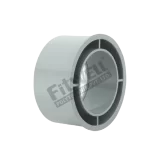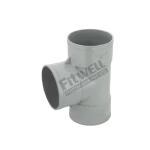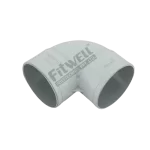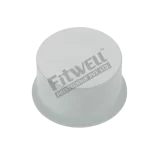How to Choose the Right Pipe Fittings for Your Project
Introduction
Choosing the right pipe fittings for your plumbing or construction project is crucial for ensuring a reliable and leak-free system. Whether you’re working on a residential plumbing project or a large-scale construction job, the fittings you select will play a key role in the efficiency and durability of the system. In this guide, we’ll provide valuable tips to help you choose the most appropriate pipe fittings for your specific needs, whether you’re working with water, gas, or chemical systems.
Understanding the Importance of Pipe Fittings
Pipe fittings are essential components that connect pipes, change the direction of flow, and control the movement of liquids or gases within a system. They are critical in both plumbing and construction projects, as they ensure that the pipes remain securely connected and that the system operates efficiently.
Key Roles of Pipe Fittings:
- Connection: They connect different sections of pipes together.
- Flow Direction: Fittings like elbows and tees control the direction of fluid or gas flow.
- Flow Control: Valves and reducers regulate flow rates and pressure in a system.
- Leak Prevention: Properly fitted connections prevent leaks and maintain system integrity.
Key Factors to Consider When Choosing Pipe Fittings
When selecting pipe fittings for your project, several important factors should be considered to ensure that they meet the specific requirements of your system.
1. Material Compatibility
Different materials are used to manufacture pipe fittings, each with specific properties suited to different applications. Common materials include:
- PVC/UPVC: Ideal for water supply systems, drainage, and irrigation.
- CPVC: Suitable for hot water systems and industrial applications involving chemicals.
- Stainless Steel: Durable and corrosion-resistant, often used in industrial applications.
- Brass and Copper: Commonly used for gas and water systems due to their durability and resistance to corrosion.
Selecting the appropriate material for your fittings ensures that the system is compatible with the transported medium (water, gas, chemicals) and can withstand the surrounding environment.
2. Size and Pressure Requirements
Pipe fittings come in a range of sizes to accommodate different pipe diameters. It’s essential to select the correct size to ensure a secure fit. Additionally, consider the pressure rating of the fittings, especially in high-pressure systems, to prevent leaks or failures.
3. Application Type
Consider whether your project involves:
- Residential Plumbing: Requires fittings for water, drainage, or gas lines.
- Industrial Applications: Needs chemical-resistant and high-pressure fittings.
- Construction Projects: Requires durable fittings for large-scale systems like HVAC or sewage.
Types of Pipe Fittings for Plumbing and Construction Projets
- Use Quality Fittings: Invest in a
There are various types of pipe fittings available, each serving a specific purpose in a plumbing or construction system. Here are some of the most commonly used fittings:
1. Elbows
- Use: Change the direction of flow in a system, typically by 90° or 45° angles.
- Applications: Used in plumbing and irrigation systems to navigate around obstacles.
2. Tees
- Use: Allow three pipes to connect, forming a “T” shape that splits or combines fluid flow.
- Applications: Common in water supply and gas distribution networks.
3. Couplings
- Use: Connect two straight sections of pipe to extend the system.
- Applications: Ideal for connecting pipes in long plumbing runs or repair jobs.
4. Reducers
- Use: Reduce the size of a pipe, allowing for a gradual transition in flow size.
- Applications: Used in HVAC systems and industrial piping.
5. Valves
- Use: Control the flow of fluids or gases by opening, closing, or partially obstructing passageways.
- Applications: Found in water systems, gas lines, and industrial setups.
Manufacturing Process of CPVC Piping Systems
Why Fitwell Pipe Fittings Are a Reliable Choice
When selecting pipe fittings, quality is key to ensuring a durable and efficient system. Fitwell Pipe Fittings are renowned for their high-quality standards, durability, and versatility, making them a reliable choice for various plumbing and construction projects.
Key Benefits of Fitwell Pipe Fittings:
- Precision Engineering: Fitwell fittings are designed with precision, ensuring a perfect fit and a leak-proof seal.
- Durability: Made from premium materials like UPVC and CPVC, Fitwell fittings are resistant to corrosion and chemical exposure.
- Wide Range of Options: Fitwell offers a wide variety of fittings, including elbows, tees, reducers, and couplings, suitable for different types of projects.
- Easy Installation: Fitwell pipe fittings are easy to install, reducing labor costs and time while ensuring a secure connection.
Tips for Selecting the Best Pipe Fittings for Your Project
Here are some practical tips to help you choose the best pipe fittings for your plumbing or construction project:
1. Match the Fitting Material to the Pipe
Ensure that the material of the pipe fittings matches the material of the pipes you’re using. This ensures compatibility and prevents corrosion or leaks. For example, UPVC pipe fittings should be used with UPVC pipes.
2. Consider the System’s Environment
If the pipes will be exposed to harsh environments, such as high temperatures, chemicals, or outdoor elements, choose fittings that can withstand these conditions. CPVC fittings are ideal for high-temperature systems, while stainless steel is perfect for corrosion-resistant needs.
3. Check the Pressure Rating
Always verify that the fittings can handle the pressure levels of your system. This is especially important in industrial or high-pressure applications where the system may operate under heavy loads.
4. Opt for Quality Brands
Choose fittings from reputable brands like Fitwell, which are known for their quality and performance. Investing in quality fittings reduces the risk of leaks, system failures, and costly repairs down the line.
5. Seek Professional Advice
If you’re unsure about which fittings to select, consult with a professional plumber or contractor. They can help you identify the correct size, material, and type of fittings for your specific project.
Conclusion
Selecting the right pipe fittings is essential for ensuring the efficiency, durability, and reliability of your plumbing or construction system. By considering factors like material compatibility, pressure ratings, and the specific needs of your project, you can choose fittings that will support a leak-free and long-lasting system. Quality brands like Fitwell Pipe Fittings offer a wide range of options that are suitable for various applications, providing peace of mind and ease of installation.
Stay on the forefront of industry trends by checking out our latest content
Stay ahead with our latest content, designed to keep you informed on the newest industry trends and insights. Discover valuable updates that help you lead in your field.

Trusted uPVC Pipes Manufacturers for India’s Top Contractors
Introduction: The Surge in Demand for uPVC Pipes Among Top Contractors in India The construction and infrastructure sectors in India have witnessed a significant transition toward sustainable and long-lasting materials.
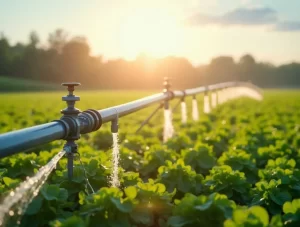
Top Innovations in Agricultural Pipe Fittings for Water Savings [2025]
Introduction to Agricultural Pipe Fittings and Water Sustainability Agricultural pipe fittings play a pivotal role in building efficient irrigation systems, crucial for modern farming practices. By exploring the versatility of

Expeart Tips from MDPE Pipe Fittings Manufacturers to Avoid Failures
Expeart Tips from MDPE Pipe Fittings Manufacturers to Avoid Failures Understanding MDPE Pipe Fittings: An Overview MDPE (Medium Density Polyethylene) fittings, used extensively in gas and water systems, offer strong,
Request a Free Consultation
Get personalized plumbing solutions with a free consultation from Fitwell.

